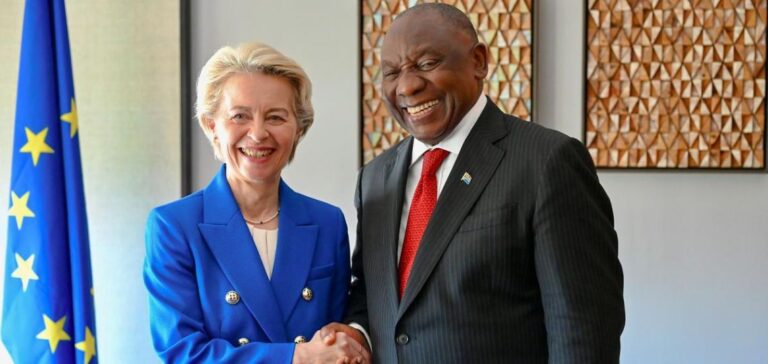The European Union (EU) has confirmed a financial commitment of €4.7 billion to support South Africa’s energy transition. This announcement was made during the EU-South Africa summit held in Cape Town on 13 March. The funding is part of the Global Gateway programme, a European initiative aimed at strengthening strategic infrastructure and international investments in partner economies.
An objective of energy diversification
South Africa generates more than 80% of its electricity from coal. Reducing this dependency is a national priority, with a target of 42% renewable energy in the energy mix by 2030, compared to the current 22%.
The EU’s allocated funds primarily aim to finance renewable energy projects and the necessary infrastructure for their integration into the national grid. This funding aligns with the Scaling Up Renewables in Africa campaign, launched in 2024 to accelerate the deployment of renewable energy capacity in the country.
A repositioning of international actors
The EU’s financial support follows the withdrawal of the United States from the Just Energy Transition Partnership (JETP), an $8.5 billion financing mechanism designed to help South Africa reduce its dependence on coal. The American withdrawal has reduced international financial commitments, affecting Pretoria’s ability to fund its energy transition.
In this context, the Global Gateway programme enables the EU to strengthen its cooperation with South Africa. Ongoing negotiations focus on the implementation of funds and their alignment with the country’s energy objectives.
Industrial and economic implications
Beyond the energy transition, the Global Gateway programme also targets other strategic sectors such as critical minerals, connectivity infrastructure, and the pharmaceutical industry. The objective is to establish structured industrial partnerships between the EU and South Africa in a context marked by geopolitical shifts and changes in global supply chains.
For Pretoria, the challenge is to leverage this funding to modernise its electrical grid and strengthen its energy industry. Investments in the sector could also benefit local companies involved in the production and export of renewable energy technologies and strategic materials.






















